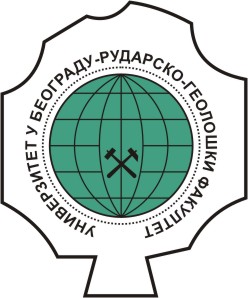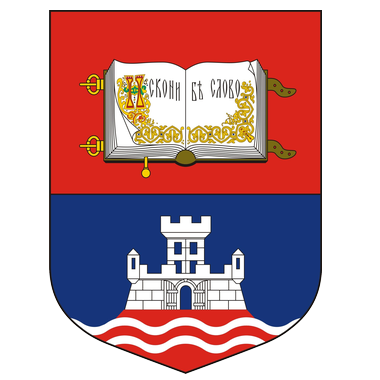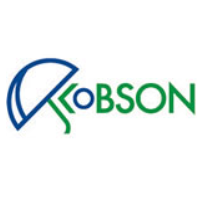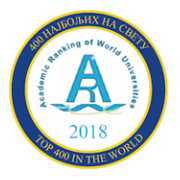Study program:
Environmental Engineering (V semester -BsC)
Geology (III semester -BsC)
Mineral Processing (VII semester -BsC)
Petroleum Engineering (V semester -BsC) |
|
Name of subject: Physical and Colloid Chemistry |
Instructors:
Prof. Marija Ilić |
|
Status: Compulsory |
|
ECTS: 5 |
|
Prerequisites: - |
Course Objectives:
Introduction to the basic laws of physicochemical processes related to the structure and properties of substances, the thermodynamic study of the direction and balance of the process, the process at the boundary of the phase, the coarse dispersed (suspensions and emulsions) and the colloidal systems, the rheology and stability of colloids, coagulation and flocculation, electrochemistry and chemical kinetics some of the methods of physicochemical analysis, in order to predict possible pollution of the environment and its protection and the application of acquired knowledge in certain areas. |
Learning Outcomes:
By having knowledge in the fields of physical chemistry, a student can: Identify conditions and anticipate the consequences of a physical chemistry process, or, in the end, take protective measures to eliminate harmful consequences, minimize or prevent them, and follow other courses envisaged as compulsory or elective, for which the knowledge required by this subject is required. |
Content:
Theory teaching
Emission and absorption of electromagnetic radiation. Atomic spectra. X-rays. Radioactivity. Molecular spectra (UV-Vis, IC). Gaseous state. Ideal and real gases. Liquid state. Viscosity. Solutions. Solid state. Crystal and amorphous states. Polymorphism. Isomorphism. Molecular, ionic, covalent crystals. Metallic bond. Crystal defects. Semicondustors, insulators. Chemical Thermodynamics. First law. Enthalpy. Heats of Reaction, Formation, Solution, Combustion. Second law. Entropy. Gibbs free energy.Equilibrium Constant and Gibbs free energy. Third law. Test I. Phase rule. Phase Diagrams. Thermal methods (TG, DTA. DSC). Surface phenomena. Surface tension. Surfactants. Physical and Chemical Adsorption. Adsorption isotherms. Adsorption and Absorption and environment. Dispersions. Suspensions. Emulsions. Colloids. Stability. Electrical double layer. Zeta-potential. Coagulation, Flocculation. Colloid rheology. Electrochemistry.Electrical and Molar Conductivies. Activity. Conductometry. Electrodes. Standard electrode potentials. Potentiometric measurements (pH, titrations). Corrosion. Chemical Kinetics. Reaction Rate. Order of Reaction. Catalysis. Test II. Practical teaching
Emission spectroscopy. AAS. Radioactivity. Geiger-Müller counter . Absorption of gamma radiation. UV-Vis spectrophotometry. IC spectrophotometry. Chemical Thermodynamics (examples and problems). The Phase Rule. Viscosity ( liquid; suspension). Colloid rheology. Structure of lyophobic colloid particle. Conductometry (Solubility determination ofsparingly soluble mineral; Solubility product). Electrodes for the pH determination. |
Suggested Reading List:
- Dušica Vučinić, Svetlana Popov: Fizička hemija, RGF, 2004.
- Ivanka Holclajtner-Antunović: Opšti kurs fizičke hemije, Zavod za udžbenike i nastavna sredstva, Bgd, 2000.
- Spasoje Đorđević: Fizička hemija, TMF, 2000.
- Samuel Glasstone: Textbook of Physical Chemistry, Lancaster Press, PA.
- Lj.Đaković, Koloidna hemija, Zavod za izdavanje udžbenika, Novi Sad, 1995.
- Colloid chemistry in mineral processing, J.S. Laskowski, J.Ralston (Eds), Elsevier, 1992.
- P. C. Hiemenz, Principles of Colloid and Surface Chemistry, Second Edition, Marcel Dekk-er, 1986.
- Handbook of Surface and Colloid Chemistry, Second Edition,Edited by K.S. Birdi CRC Press 2002.
|
Conduct of the Course:
Lectures; practical teaching through laboratory work;conduct a laboratory log |
Fund hours:
| Lectures |
Exercises |
Other forms of teaching |
Study research |
| 2 |
2 |
0 |
0 |
|
Assessment:
| Final Exam |
ECTS |
| Oral Exam | 40 |
| Classwork Assessment |
ECTS |
| Class Participationа | 10 | | Practical Classes | 30 | | Seminars | 20 |
|
|
Additional Assessment Criteria: - |
|
|






